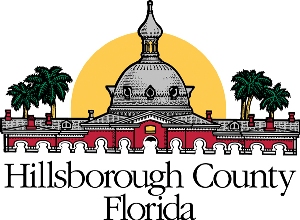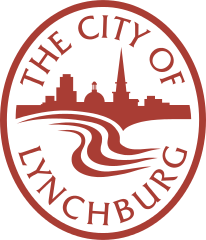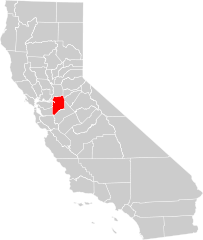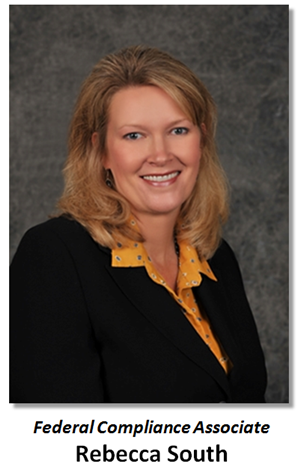October 12, 2015 •
Columbus Mayoral Candidate Proposes New Ethics Plan
Columbus mayoral candidate Andrew Ginther recently proposed a plan for new ethics rules for lobbyists and elected officials. His plan would amend the definition of lobbyist and expand lobbyist reporting requirements. Elected officials would be required to report all gifts […]
 Columbus mayoral candidate Andrew Ginther recently proposed a plan for new ethics rules for lobbyists and elected officials. His plan would amend the definition of lobbyist and expand lobbyist reporting requirements. Elected officials would be required to report all gifts received as well as participate in annual ethics training. The plan would also require additional disclosure in city campaign finance filings beyond the requirements already set by state law.
Columbus mayoral candidate Andrew Ginther recently proposed a plan for new ethics rules for lobbyists and elected officials. His plan would amend the definition of lobbyist and expand lobbyist reporting requirements. Elected officials would be required to report all gifts received as well as participate in annual ethics training. The plan would also require additional disclosure in city campaign finance filings beyond the requirements already set by state law.
Ginther, president of Columbus City Council, faces Franklin County Sheriff Zach Scott in the November election; Scott also has a plan for tightening restrictions on lobbyists and proposing gift rules.
October 12, 2015 •
Monday News Roundup
Lobbying Florida: “Hillsborough to Post Paid Lobbyists’ Visits Online” by Mike Salinero for Tampa Tribune Pennsylvania: “House Passes Legislation to Increase Lobbying Fines” by Staff for Pennsylvania Business Daily Campaign Finance “Experts: John Kasich political ads chart new territory” by […]

Lobbying
Florida: “Hillsborough to Post Paid Lobbyists’ Visits Online” by Mike Salinero for Tampa Tribune
Pennsylvania: “House Passes Legislation to Increase Lobbying Fines” by Staff for Pennsylvania Business Daily
Campaign Finance
“Experts: John Kasich political ads chart new territory” by Fredreka Schouten for USA Today
New York: “Advance Group Fined $26k by Schneiderman, Campaign Finance Board” by Chris Bragg for Albany Times Union
Pennsylvania: “Allentown Council Passes Anti-Pay-to-Play Bill in Wake of FBI Probe” by Emily Opilo for Allentown Morning Call
Ethics
“Corporations Improve Reporting of Political Activity – with Exceptions” by Dave Levinthal and Cady Zuvich for Center for Public Integrity
Illinois: “Former Chicago Public Schools Chief to Plead Guilty to Bribery Scheme” by Jason Meisner and Juan Perez, Jr. for Chicago Tribune
New York: “Three Cuomo-Tied Hires Spark JCOPE Board Unrest” by Chris Bragg for Albany Times Union
Ohio: “Ginther among Those Being Investigated Over Trip to Big Ten Title Game” by Lucas Sullivan for Columbus Dispatch
Legislative Issues
“House Majority Leader Kevin McCarthy Drops Out of Race for House Speaker” by Mike DeBonis for Washington Post
“Group Tries to Teach Lawmakers How to Talk about Pot” by Evan Halper for Los Angeles Times
California: “California’s High Court Appears Ready to Allow Voters to Weigh in on Citizens United” by Maura Dolan for Los Angeles Times
October 9, 2015 •
News You Can Use Digest – October 9, 2015
National: Corporations Improve Reporting of Political Activity – with Exceptions Center for Public Integrity – Dave Levinthal and Cady Zuvich | Published: 10/8/2015 A new study asserts that most of the nation’s largest corporations are showing “sustained, concrete progress” toward volunteering […]

National:
Corporations Improve Reporting of Political Activity – with Exceptions
Center for Public Integrity – Dave Levinthal and Cady Zuvich | Published: 10/8/2015
A new study asserts that most of the nation’s largest corporations are showing “sustained, concrete progress” toward volunteering more information about how they interact with governments, politicians, and campaigns. The study awarded points in 24 categories to companies that, for example, voluntarily disclose contributions to certain nonprofit groups, publish policies that govern political expenditures from its corporate treasury, and reveal money spent to influence state-level ballot initiatives. Such disclosures generally exceed what is required of corporations, such as regularly filing disclosure reports about congressional lobbying activity.
Federal:
Donald Trump’s Candidacy Raises Novel Ethics Questions
USA Today – Fredreka Schouten | Published: 10/6/2015
Experts say federal law would not explicitly prohibit Donald Trump from continuing to run his sprawling gambling, real-estate, and brand-marketing empire if he is elected president. And the conflict-of-interest rules that bar Cabinet secretaries and other high-ranking executive branch officials from overseeing matters that boost their personal bottom lines do not apply to the president. As president, Trump would appoint members to the Federal Reserve Board, which sets interest rates that could affect mortgages on his real estate. His pick for the Interior Department would make decisions affecting Indian tribes with gambling interests that compete with Trump’s casinos. “[Trump] stands out because he’s not just a businessman – he’s the Flo Ziegfeld or the P.T. Barnum of politics. He’s genuinely unique”” said Barbara Perry, director of presidential studies at the University of Virginia’s Miller Center.
Experts: John Kasich political ads chart new territory
USA Today – Fredreka Schouten | Published: 10/7/2015
A television ad promoting Ohio Gov. John Kasich’s presidential campaign opens with images of Islamic State fighters and Russia’s Vladimir Putin, and touts Kasich as the one candidate with the experience to deal with a dangerous world. The video does not come from the Republican’s campaign, however. Instead, it is produced and funded by an outside group that can raise unlimited amounts to back Kasich’s candidacy. And in a test of rules that bar candidates from coordinating with independent groups, Kasich shot footage for this and other ads in concert with the outside group. Kasich’s camp and his allies argue that is permissible because he was not officially a candidate when he taped material for the commercials.
Gallup Gives Up the Horse Race
Politico – Steven Shepard | Published: 10/6/2015
After a bruising 2012 cycle, in which its polls were farther off than most of its competitors, Gallup said it is not planning any polls for the presidential primaries this cycle. And, even following an internal probe into what went wrong last time around, Gallup would not commit to tracking the general election next year. The move comes at a time of unusual tumult in the polling world. Some have expressed concern about the accuracy of polling at a time when fewer people are reachable or willing to talk to pollsters.
House Majority Leader Kevin McCarthy Drops Out of Race for House Speaker
Washington Post – Mike DeBonis | Published: 10/8/2015
U.S. House Majority Leader Kevin McCarthy abruptly took himself out of the race to succeed John Boehner as speaker, apparently undone by the same forces that drove Boehner to resign. McCarthy’s candidacy was damaged when he suggested in an interview that the House committee investigating Benghazi had the political aim of damaging Hillary Clinton’s presidential campaign. He acknowledged his remarks about Benghazi had factored into his decision. McCarthy’s hopes of uniting Republicans took a blow when a close-knit group of roughly 40 hardline conservatives, the House Freedom Caucus, said it would back U.S. Rep. Daniel Webster.
Pithy, Mean and Powerful: How Donald Trump mastered Twitter for 2016
New York Times – Michael Barbaro | Published: 10/5/2015
Donald Trump has mastered Twitter in a way no candidate for president ever has, redefining its power as a tool of political promotion, distraction, and attack – and turning a 140-character task that other candidates farm out to staff members into a centerpiece of his campaign. In the process, he has managed to fulfill a vision sketched out a decade ago by a handful of digital campaign strategists: a White House candidacy that forgoes costly, conventional methods of communication and relies instead on the free and visceral platforms of social media. As Trump enters an uncertain period, even rival campaigns acknowledge Twitter is providing a bulwark against a slide in his poll numbers by allowing millions of supporters to make his case for him and deflect the controversies he touches off.
From the States and Municipalities:
California – More Transparency Coming for Referendums
San Diego Union-Tribune – David Garrick | Published: 10/6/2015
The San Diego City Council approved stricter reporting rules for groups supporting or opposing referendum campaigns. The changes make disclosures regarding referendums and initiatives the same as the city now requires of candidates seeking elective office. The rules will require committees formed to support or oppose an initiative or referendum to file disclosures within 10 days of receiving $100 contributions and within 24 hours of receiving $1,000 contributions. In addition, committees that make independent expenditures to support or oppose an initiative or referendum must file disclosures of all expenditures and funding sources within 24 hours during the signature gathering phase.
Kansas – Lobbyists Spend $500,000 on Food, Drink for Kansas Lawmakers
Wichita Eagle – Bryan Lowry | Published: 10/2/2015
Lobbyists in 2015 spent more than $500,000 entertaining Kansas lawmakers during the longest legislative session in the state’s history. State law prohibits lobbyists from making campaign donations during the session and limits them to spending $100 on gifts for a lawmaker. But unlike some other states, Kansas has no cap on the amount of food and drink a lobbyist can buy a legislator. Data from the state ethics commission give a partial picture of which organizations were most active in lobbying and which lawmakers they focused on during the session. But more than half the spending is not itemized, meaning it is not linked to a specific lawmaker.
Kentucky – Kentucky Lawmakers, Lobbyists May Already Be Violating New State Ethics Laws
Insider Louisville – Jonathan Meador | Published: 10/6/2015
An advisory from the Kentucky Legislative Ethics Commission expressed concern that lawmakers may be directly soliciting campaign contributions from lobbyists, potentially violating new laws specifically prohibiting them from doing so. Commission Executive Director John Schaaf says legislators might be sending fundraising appeals to lobbyists – including dollar amounts required for attendance at fundraisers, and to whom the payment should be made – which may then be passed on to the lobbyists’ employers. This, Schaaf said, likely would constitute a direct solicitation of a contribution.
New Mexico – New Corruption Fine Could Be Applied to Duran Case
Albuquerque Journal – Deborah Baker | Published: 10/5/2015
New Mexico Secretary of State Dianna Duran is facing 65 criminal charges including fraud, embezzlement, and money laundering for allegedly misusing campaign contributions to cover personal spending, including at casinos. Twenty-six of the charges are felonies. Under a 2012 law, if Duran were convicted of a felony, a judge could increase her sentence by imposing a fine “not to exceed the value of the salary and fringe benefits paid to the offender” since the commission of the first felony for which she was convicted. It would be the first time the law has been used against a statewide official, and it is not clear how it would work. It does not use the word “pension,” and it does not technically provide for pension forfeiture. But losing pensions is precisely what legislators had in mind when they passed it.
North Carolina – Advisory Letter Could Permit Bigger Role for Outside Groups in NC Elections
WRAL – Mark Binker | Published: 10/3/2015
An advisory letter from State Board of Elections Director Kim Strach says her agency has no ability to regulate organizations that mail, publish, or broadcast issue ads, which often look like, and for all practical purposes are, campaign ads. Groups that avoid “express advocacy” and do not trip certain thresholds on the election calendar may remain unregulated and are free to exchange certain types of information with candidates. Strach’s letter lays out how policy organizations or groups formed to bolster a particular candidate for governor, such as the Renew North Carolina Foundation that has aired ads featuring Gov. Pat McCrory, may communicate with their favored candidates.
North Carolina – Legislature’s Last-Minute Rush Prompts Criticism
Raleigh News & Observer – Colin Campbell | Published: 10/3/2015
Lack of transparency and time for public input was a common theme in the General Assembly’s final days in Raleigh, with lawmakers using a variety of maneuvers to move proposals that had not previously been made public. Longtime observers of the legislature say unexamined proposals tend to surface in the final days of every session, regardless of which party is in charge. Also drawing criticism was the decision to extend the final session to four a.m., rather than adjourning and finishing the year’s business in daylight hours later. As dawn approached, some lawmakers fell asleep in their seats. Others played music or passed a football to stay awake. And 37 House members and seven Senate members were already gone before the final vote.
Ohio – Redlight Camera Lobbyist Agrees to Plead to Extortion, Releases Statement
Columbus Dispatch – Lucas Sullivan | Published: 10/2/2015
Lobbyist John Raphael agreed to plead guilty extortion for pressuring a traffic-camera company to make more than $70,000 in campaign contributions to officials in Columbus and Cincinnati. He told federal officials he warned Redflex Traffic Systems that it would lose out on contracts with the cities if it did not make the donations. Raphael then made the contributions to the unnamed officials through himself, family members, friends, and business associates. Former Redflex Chief Executive Officer Karen Finley has pleaded guilty to funneling campaign contributions to officials in the two cities between 2005 and 2013. Finley’s plea agreement said contributions intended for Columbus officials were given to the Franklin County Democratic Party and Ohio Democratic Party.
Pennsylvania – House Passes Legislation to Increase Lobbying Fines
Pennsylvania Business Daily; Staff – | Published: 10/7/2015
The Pennsylvania House passed legislation to increase fines for lobbying violations. House Bill 1348 would increase the maximum penalty from $2,000 to $4,000. It also increases the maximum penalty under current law for negligent failure to report, in varying increments over time. The bill also would require all disclosure filings to be posted on the Department of State’s website within seven days of receipt. It now goes to the state Senate.
Wisconsin – GOP Bills Would Hike Contribution Limits, Split GAB into Two Agencies
Milwaukee Journal Sentinel – Patrick Marley | Published: 10/7/2015
Republican lawmakers formally unveiled a plan to disband the Wisconsin Government Accountability Board (GAB), calling it a well-intentioned experiment that failed. The bill would split the GAB into two separate commissions, one regulating ethics laws and the other covering elections. It would be similar to the system the GAB replaced in 2007. Members would be partisan appointees, evenly split between Republicans and Democrats. GOP lawmakers also introduced a campaign finance bill that would double how much donors can give to candidates. It would also rewrite laws that are out of step with a host of state and federal court rulings that have loosened campaign finance restrictions.
 State and Federal Communications produces a weekly summary of national news, offering more than 60 articles per week focused on ethics, lobbying, and campaign finance.
State and Federal Communications produces a weekly summary of national news, offering more than 60 articles per week focused on ethics, lobbying, and campaign finance.
Wisconsin legislators introduced bills Wednesday to double political contribution limits, amend campaign finance rules, and divide the state’s Government Accountability Board. Critics argue the agency split is a bad idea, as it turns over control from nonpartisan judges to partisan […]
 Wisconsin legislators introduced bills Wednesday to double political contribution limits, amend campaign finance rules, and divide the state’s Government Accountability Board. Critics argue the agency split is a bad idea, as it turns over control from nonpartisan judges to partisan appointees.
Wisconsin legislators introduced bills Wednesday to double political contribution limits, amend campaign finance rules, and divide the state’s Government Accountability Board. Critics argue the agency split is a bad idea, as it turns over control from nonpartisan judges to partisan appointees.
The specific bill would create two new agencies, the Elections Commission and the Ethics Commission, to oversee laws on ethics, campaign finance, and lobbying. Legislators intend to amend the bill to ensure the six-member commissions are split evenly between Democrats and Republicans.
Both commissions would go into effect June 30, 2016.
October 8, 2015 •
4000 Posts and Going Strong
Lobby Comply is pleased to announce the celebration of our 4,000th blog post! We will continue to be the expert source, providing the latest news and analysis on campaign finance, lobbying, procurement, and ethics laws. Thank you to all of […]
 Lobby Comply is pleased to announce the celebration of our 4,000th blog post! We will continue to be the expert source, providing the latest news and analysis on campaign finance, lobbying, procurement, and ethics laws.
Lobby Comply is pleased to announce the celebration of our 4,000th blog post! We will continue to be the expert source, providing the latest news and analysis on campaign finance, lobbying, procurement, and ethics laws.
Thank you to all of our loyal readers!
October 8, 2015 •
Hillsborough County, Florida Commissioners Vote to Create Lobbyist Registration Office
County commissioners unanimously approved a motion by Chairwoman Sandy Murman to increase transparency for those who are paid to lobby the Commission. An Office of Professional Lobbyist Registration will be created within the county attorney’s office and the county attorney […]
 County commissioners unanimously approved a motion by Chairwoman Sandy Murman to increase transparency for those who are paid to lobby the Commission. An Office of Professional Lobbyist Registration will be created within the county attorney’s office and the county attorney will draft amendments to the existing ordinance.
County commissioners unanimously approved a motion by Chairwoman Sandy Murman to increase transparency for those who are paid to lobby the Commission. An Office of Professional Lobbyist Registration will be created within the county attorney’s office and the county attorney will draft amendments to the existing ordinance.
Currently, lobbyists must register prior to each meeting with an official, but many do not adhere to this requirement. The new ordinance will require notice of visits by lobbyists to be posted online and the registration office will be responsible for enforcement.
Chairwoman Murman stated she wants the ordinance to focus on paid lobbyists, excluding volunteers from the requirements.
October 8, 2015 •
Pennsylvania House Votes to Increase Penalty for Lobbying Act Violations
The Pennsylvania House unanimously approved a bill to increase the penalty for violating the Lobbying Disclosure Act. The bill places the maximum penalty at $4,000, up from $2,000, and incrementally increases the penalty for negligent failure to register or report […]
 The Pennsylvania House unanimously approved a bill to increase the penalty for violating the Lobbying Disclosure Act. The bill places the maximum penalty at $4,000, up from $2,000, and incrementally increases the penalty for negligent failure to register or report based on the number of days late.
The Pennsylvania House unanimously approved a bill to increase the penalty for violating the Lobbying Disclosure Act. The bill places the maximum penalty at $4,000, up from $2,000, and incrementally increases the penalty for negligent failure to register or report based on the number of days late.
In an attempt to increase transparency, the bill further requires all filings to be posted online within seven days. The bill now goes to the Senate for consideration.
Photo of the Pennsylvania State Capitol by Michael180 on Wikimedia Commons.
October 8, 2015 •
Thursday News Roundup
Lobbying “Big Pharma Braces for 2016 Assault” by Peter Sullivan for The Hill Campaign Finance “Is Pro-Bush Super PAC Obscuring Spending?” by Carrie Levine for Center for Public Integrity “Cruise Control: D.C. lobbyists pay up for a weekend with Patrick […]
 Lobbying
Lobbying
“Big Pharma Braces for 2016 Assault” by Peter Sullivan for The Hill
Campaign Finance
“Is Pro-Bush Super PAC Obscuring Spending?” by Carrie Levine for Center for Public Integrity
“Cruise Control: D.C. lobbyists pay up for a weekend with Patrick Leahy” by Paul Heintz for Seven Days
California: “More Transparency Coming for Referendums” by David Garrick for San Diego Union-Tribune
California: “San Jose Council Makes Sweeping Changes to Election Law” by Ramona Giwargis for San Jose Mercury News
Ethics
Alabama: “Ethics Commission: Lawmakers can’t lobby for employers” by Brian Lyman for Montgomery Advertiser
California: “OC Supervisors Bring Ethics Commission a Step Closer to Reality” by Nick Gerda for Voice of OC
Wisconsin: “GOP Bills Would Hike Contribution Limits, Split GAB into Two Agencies” by Patrick Marley for Milwaukee Journal Sentinel
Elections
“Gallup Gives Up the Horse Race” by Steven Shepard for Politico
Legislative Issues
Minnesota: “Questions Raised about Lack of Public Access to Capitol” by John Croman for KARE
October 7, 2015 •
Jurisdiction Added to our Website!
The number of municipalities and regional governments our research associates track continues to grow. We now cover almost 300 municipalities and local governments. This is part of a continuous effort to better serve the needs of our clients. In that […]
 The number of municipalities and regional governments our research associates track continues to grow. We now cover almost 300 municipalities and local governments. This is part of a continuous effort to better serve the needs of our clients.
The number of municipalities and regional governments our research associates track continues to grow. We now cover almost 300 municipalities and local governments. This is part of a continuous effort to better serve the needs of our clients.
In that effort, we have recently added an abridged jurisdiction to our website. This entry, condensed due to the limited number of relevant local laws, provides the core information our clients need for their government relations work.
The new jurisdiction is: Lynchburg, Virginia.
Seal of the City of Lynchburg courtesy of CityofLynchburg on Wikimedia Commons.
October 7, 2015 •
Wednesday Government Relations News
Lobbying Kentucky: “Kentucky Lawmakers, Lobbyists May Already Be Violating New State Ethics Laws” by Jonathan Meador for Insider Louisville Campaign Finance “How Hillary Clinton Kept Her Wealthy Friends Close While at State Department” by Tom Hamburger for Washington Post “Menendez’s […]
 Lobbying
Lobbying
Kentucky: “Kentucky Lawmakers, Lobbyists May Already Be Violating New State Ethics Laws” by Jonathan Meador for Insider Louisville
Campaign Finance
“How Hillary Clinton Kept Her Wealthy Friends Close While at State Department” by Tom Hamburger for Washington Post
“Menendez’s Defense Relies on Odd Twist” by Salvador Rizzo for Bergen Record
California: “Regulators Propose Rules to Prevent Illegal Coordination” by Judy Lin (Associated Press) for Albany Times Union
Virginia: “Ex-Treasurer for Va. Senate Minority Leader is Accused of Stealing from Him” by Laura Vozzella for Washington Post
Ethics
“Donald Trump’s Candidacy Raises Novel Ethics Questions” by Fredreka Schouten for USA Today
Florida: “North Miami Senior High’s Night-School Principal Arrested on Corruption Charges” by David Ovalle for Miami Herald
Elections
“The Man Who Launched the GOP’s Civil War” by Jonathan Katz for Politico
Legislative Issues
North Carolina: “Legislature’s Last-Minute Rush Prompts Criticism” by Colin Campbell for Raleigh News & Observer
October 6, 2015 •
New Lobbying Law Takes Effect in San Joaquin County, California
On September 17, 2015, a new lobbying law took effect in San Joaquin County, California. Ordinance 4468, passed by the Board of Supervisors in August, requires lobbyists, lobbying firms, and lobbyist’s employers to register when lobbying county officials. Registration with […]
 On September 17, 2015, a new lobbying law took effect in San Joaquin County, California. Ordinance 4468, passed by the Board of Supervisors in August, requires lobbyists, lobbying firms, and lobbyist’s employers to register when lobbying county officials. Registration with the clerk of the board is required 10 days after becoming engaged as a lobbyist. There is an initial registration fee of $75. The annual registration renewal fee is $50.
On September 17, 2015, a new lobbying law took effect in San Joaquin County, California. Ordinance 4468, passed by the Board of Supervisors in August, requires lobbyists, lobbying firms, and lobbyist’s employers to register when lobbying county officials. Registration with the clerk of the board is required 10 days after becoming engaged as a lobbyist. There is an initial registration fee of $75. The annual registration renewal fee is $50.
The new county ordinance defines lobbying activities as oral, written, or electronic communication made directly or indirectly to a county official, for the purpose of persuading or influencing official actions or decisions. An individual is required to register when he or she is employed, contracts, or otherwise receives compensation of $500 or more in any calendar month to communicate directly or through agents, employees, or subcontractors with any county official for the purpose of influencing official action. However, a substantial or regular portion of the activities for which the person receives such compensation must be for the purpose of influencing official action. Influencing official action includes promoting, supporting, influencing, modifying, opposing, or delaying actions of any county official, including soliciting county contracts or funds. Influence can include providing county officials with statistics, studies, or analyses.
Registration is not required by agents and employees of tax-exempt organizations, elected and appointed public officials and employees, news organizations, and advocates or attorneys in certain circumstances. Amendments to a registration form must be completed and filed by the lobbyist with the clerk of the board within ten days of any change.
Penalties for failing to register range from a written warning to daily fines staggered in the amounts of $25, $50, and $75, up to a maximum penalty of $500. Penalties also include disqualification from county contracts if any lobbyist, lobbying firm, employer, or other person or entity acting on behalf of the person or entity seeking the contract fails to comply with the county’s lobbying ordinance.
October 6, 2015 •
Ask the Experts – Federal Post-Employment Restrictions
Q. We recently hired a lobbyist that is coming to our company directly from spending a number of years as a Senate staffer. What restrictions should we be aware of as her new employer in terms of who she can […]
 Q. We recently hired a lobbyist that is coming to our company directly from spending a number of years as a Senate staffer. What restrictions should we be aware of as her new employer in terms of who she can contact on the Hill?
Q. We recently hired a lobbyist that is coming to our company directly from spending a number of years as a Senate staffer. What restrictions should we be aware of as her new employer in terms of who she can contact on the Hill?
A. Both the House and the Senate have post-employment restrictions for certain individuals leaving their employment on the Hill. Importantly, the House and Senate ethics committees will discuss with the staffer prior to his or her departure the restrictions under which he or she must operate. That said, as her new employer you should definitely be aware of what restrictions are applicable to her situation so neither the company nor she violates the rules.
For the Senate, senior staff (currently defined as individuals whose annual salary is $130,500 or more) are subject to a one-year, Senate-wide ban. Essentially, senior staff leaving the Senate may not lobby the entire Senate for one year following their departure – this includes lobbying contact with personal, committee, and leadership offices. Staff making less than $130,500 a year are subject to a one year ban from lobbying their particular office – whether personal, committee, or leadership office.
The House restriction for senior staff is a one year ban from lobbying the particular office for which the former staffer worked and there is no ban in the House for staffers making less than $130,500.
You can directly submit questions for this feature, and we will select those most appropriate and answer them here. Send your questions to: experts@stateandfed.com.
(We are always available to answer questions from clients that are specific to your needs, and we encourage you to continue to call or e-mail us with questions about your particular company or organization. As always, we will confidentially and directly provide answers or information you need.) Our replies to your questions are not legal advice. Instead, these replies represent our analysis of laws, rules, and regulations.
October 6, 2015 •
Tuesday Lobbying and Campaign Finance News Update
Lobbying Kansas: “Lobbyists Spend $500,000 on Food, Drink for Kansas Lawmakers” by Bryan Lowry for Wichita Eagle Ohio: “Redlight Camera Lobbyist Agrees to Plead to Extortion, Releases Statement” by Lucas Sullivan for Columbus Dispatch Campaign Finance “At End of Fundraising […]
 Lobbying
Lobbying
Kansas: “Lobbyists Spend $500,000 on Food, Drink for Kansas Lawmakers” by Bryan Lowry for Wichita Eagle
Ohio: “Redlight Camera Lobbyist Agrees to Plead to Extortion, Releases Statement” by Lucas Sullivan for Columbus Dispatch
Campaign Finance
“At End of Fundraising Quarter, O’Malley Seeks to Lessen Role of Money in Politics” by John Wagner for Washington Post
Connecticut: “Court Fight Heats Up Over Subpoena of Democrats’ Emails about Malloy’s Campaign” by Jon Lender for Hartford Courant
Maine: “A Wary Ethics Panel Sends Campaign Spending Proposal to Legislature” by Steve Mistler for Portland Press Herald
New Mexico: “New Corruption Fine Could Be Applied to Duran Case” by Deborah Baker for Albuquerque Journal
North Carolina: “Advisory Letter Could Permit Bigger Role for Outside Groups in NC Elections” by Mark Binker for WRAL
West Virginia: “Bobby Harrell Says He Won’t Immediately Pay Ethics Order” by Schuyler Kropf for Charleston Post & Courier
Ethics
New Jersey: “Christie’s DOT Chief Steps Down” by Shawn Boberg and Dustin Racioppi for Bergen Record
Elections
“Pithy, Mean and Powerful: How Donald Trump mastered Twitter for 2016” by Michael Barbaro for New York Times
October 5, 2015 •
Kentucky State Senator Files Suit Over Contribution Limits and Ban on Gifts from Lobbyists
State Sen. John Schickel filed a federal lawsuit against the Kentucky Registry of Election Finance and the Legislative Ethics Board aimed at eliminating the state’s campaign contribution limits. The suit claims the $1,000 limit to individual candidates and the ban […]
 State Sen. John Schickel filed a federal lawsuit against the Kentucky Registry of Election Finance and the Legislative Ethics Board aimed at eliminating the state’s campaign contribution limits. The suit claims the $1,000 limit to individual candidates and the ban on corporate contributions are violations of free speech.
State Sen. John Schickel filed a federal lawsuit against the Kentucky Registry of Election Finance and the Legislative Ethics Board aimed at eliminating the state’s campaign contribution limits. The suit claims the $1,000 limit to individual candidates and the ban on corporate contributions are violations of free speech.
The suit also asks the court to strike down ethics rules prohibiting lobbyists from making contributions, prohibiting employers of lobbyists from making contributions while the Legislature is in session, and banning gifts from lobbyists to legislators.
Kentucky House candidate David Watson and Pendleton County judge candidate Ken Moellman Jr. have joined the suit. The state agencies have until October 6 to respond.
State and Federal Communications, Inc. provides research and consulting services for government relations professionals on lobbying laws, procurement lobbying laws, political contribution laws in the United States and Canada. Learn more by visiting stateandfed.com.

